Ants are often considered beneficial insects—after all, they aerate the soil and prey on harmful pests like caterpillars and termites. However, when they take over your garden beds, they can quickly become a nuisance. Ants not only disrupt the soil and farm aphids for their honeydew, but they also build unsightly mounds and may disturb delicate root systems, seedlings, and even beneficial insects like earthworms.
If you’re trying to maintain a healthy, organic garden, chemical ant killers may do more harm than good—damaging soil biology, harming pollinators, or contaminating your crops. Fortunately, nature has provided effective, eco-friendly solutions for keeping ants at bay without compromising your garden’s health.
This article explores five natural and proven methods to deter ants from invading your garden beds, while also promoting a balanced ecosystem.
Why Are Ants in Your Garden in the First Place?
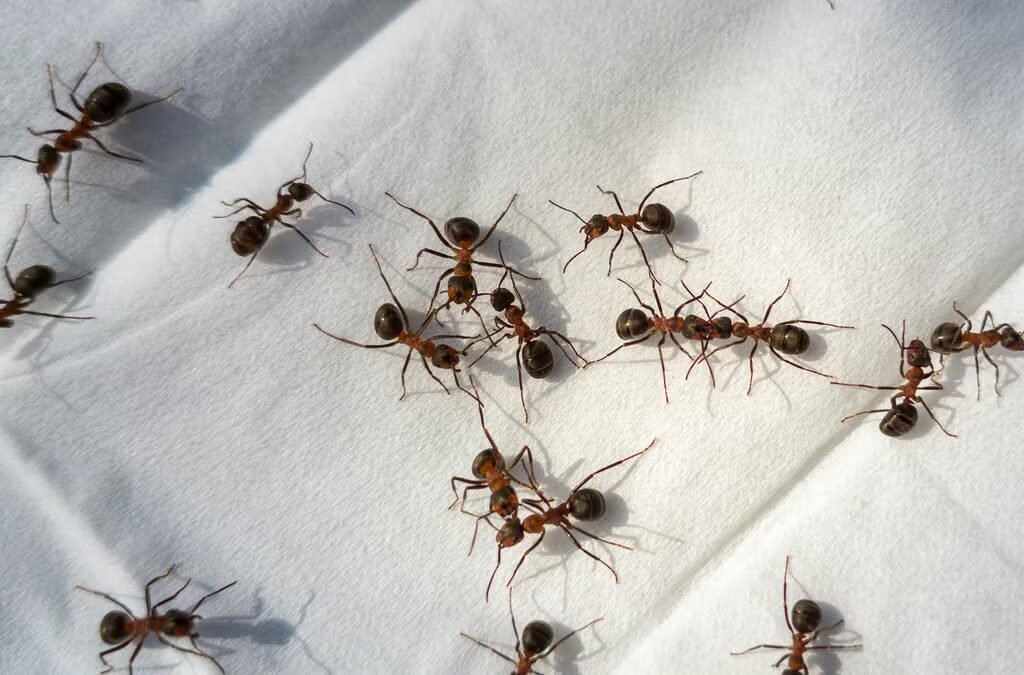
Before you get rid of ants, it’s important to understand why they’re there:
- Aphids and scale insects: Ants farm these pests for their sweet honeydew. If you have an aphid infestation, ants will likely follow.
- Dry, sandy soil: Some ant species prefer dry, loose soil that’s easy to tunnel through.
- Food sources: Rotting fruits, sugary plant sap, or compost piles can attract them.
- Shelter: Garden beds with dense mulch, leaf litter, or raised structures can offer protection for colonies.
Removing the attraction is the first step in effective ant control.
1. Use Diatomaceous Earth (DE)
What It Is:
Diatomaceous Earth is a natural, powdery substance made from the fossilized remains of microscopic aquatic organisms called diatoms. Though harmless to humans and pets, DE acts like razor-sharp glass to insects with exoskeletons, dehydrating and killing them on contact.
How to Use It:
- Apply a thin line or dusting of DE around the perimeter of your garden beds or directly on visible ant trails and mounds.
- Reapply after heavy rain or watering, as moisture reduces its effectiveness.
- Use food-grade DE—never industrial-grade, which may contain harmful additives.
Why It Works:
- Cuts through the ants’ exoskeletons, causing them to dry out and die.
- Non-toxic to people, pets, and pollinators (when applied carefully).
Bonus Tip: Use DE early in the morning or late in the afternoon when beneficial insects like bees are less active.
2. Plant Natural Ant-Repelling Herbs
Why Certain Plants Help:
Some plants contain natural compounds or oils that repel ants due to their strong scents or chemical makeup. Integrating these into your garden creates a living ant barrier.
Top Ant-Repelling Plants:
- Mint (especially peppermint): Strong scent confuses ant trails.
- Tansy: Contains camphor compounds ants dislike.
- Lavender: Its pleasant aroma to humans is a deterrent for ants.
- Thyme & Rosemary: Contain essential oils that act as natural insecticides.
How to Use Them:
- Plant these herbs around the borders of your raised beds or garden rows.
- Create a mixed herb garden as a companion to vegetables prone to aphid infestations.
- Crush a few leaves and scatter them on ant trails for a more immediate effect.
Note: Mint spreads aggressively—consider planting it in pots or containers to keep it from overtaking other plants.
3. Apply Citrus Peels or Citrus Spray
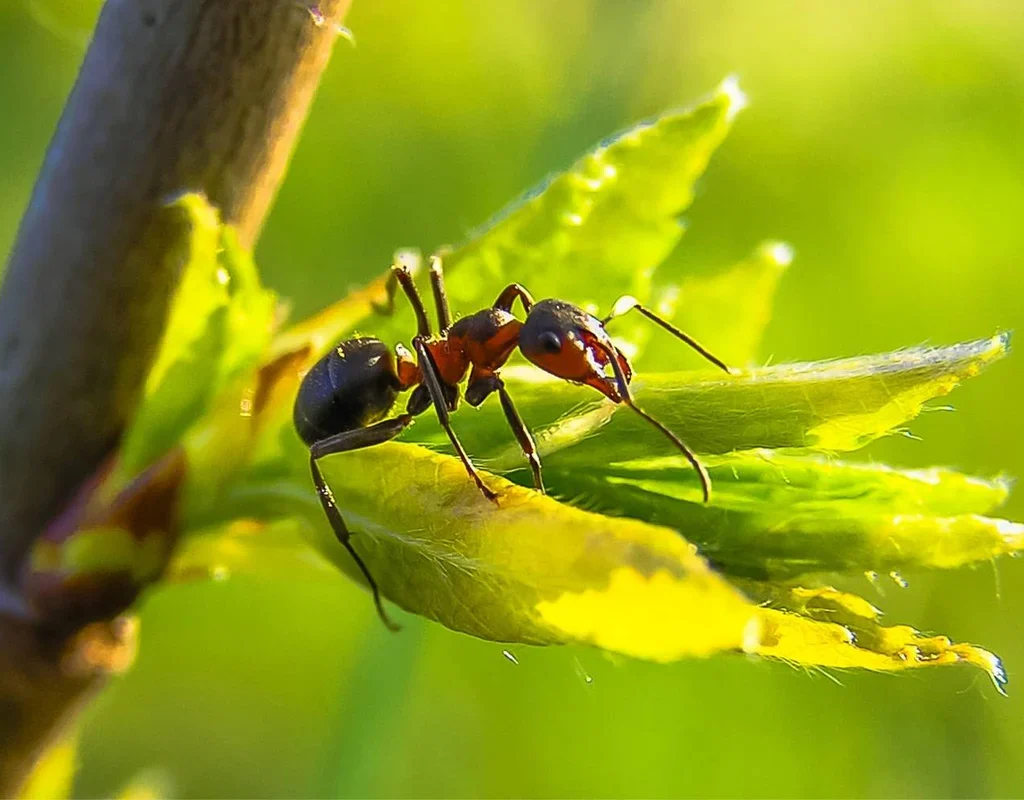
Why Ants Hate Citrus:
Citrus fruits—like oranges, lemons, and grapefruits—contain d-limonene, a natural compound that is toxic to ants. It disrupts their nervous system and breaks down the waxy coating on their bodies.
How to Use Citrus in the Garden:
Method 1: Citrus Peel Mulch
- Dry out orange or lemon peels and grind them into a powder.
- Sprinkle the powder around garden beds and ant entry points.
Method 2: DIY Citrus Spray
- Boil citrus peels in water for 10–15 minutes.
- Let the mixture cool and strain into a spray bottle.
- Spray directly onto ant trails, mounds, and aphid-infested plants.
Why It Works:
- Overpowers the ants’ scent trails.
- Natural and biodegradable.
- Can also help deter aphids, spiders, and fleas.
Caution: Avoid spraying citrus directly onto delicate leaves during full sun exposure, as the oils can cause leaf burn.
4. Use Cinnamon and Clove Powder
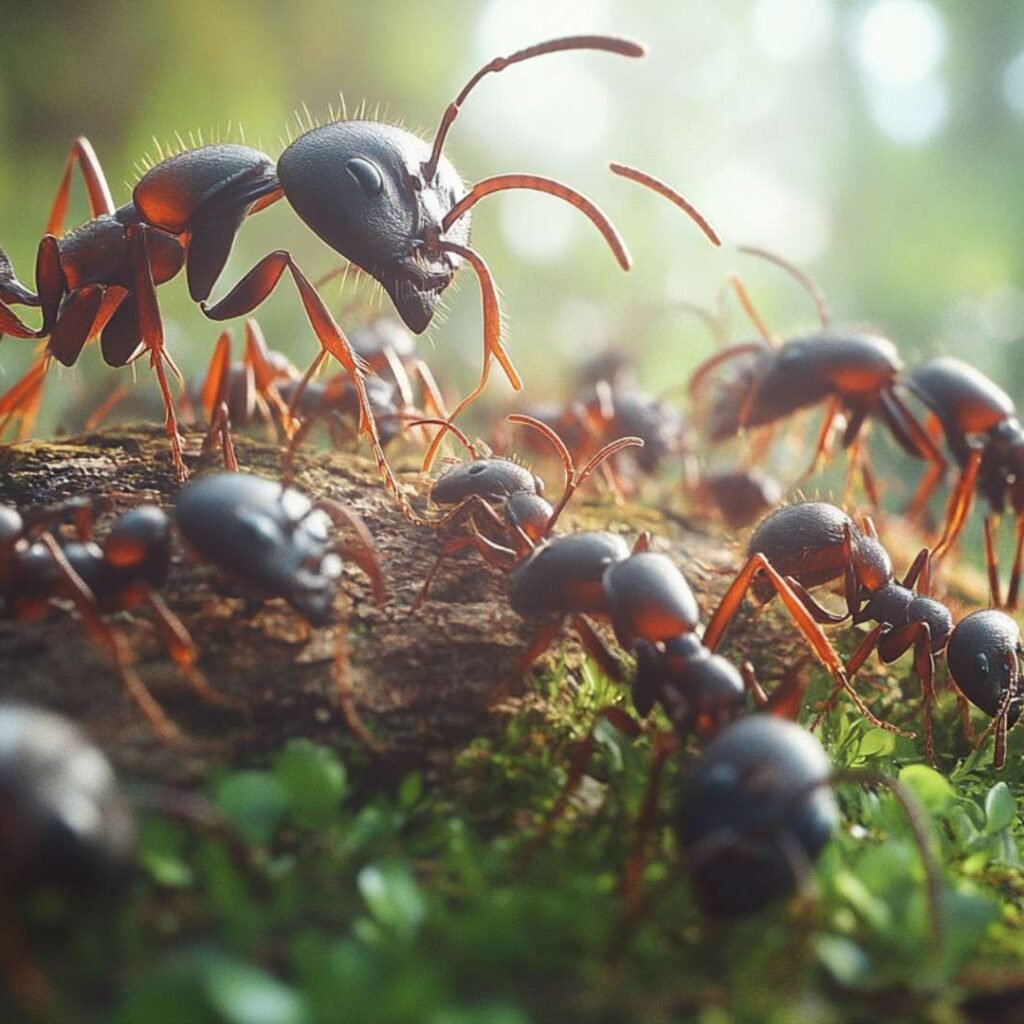
Why These Spices Work:
Cinnamon and clove both contain strong-smelling oils (cinnamaldehyde and eugenol) that disrupt ant communication and scent trails. Ants rely heavily on pheromones to navigate, and these spices confuse and repel them.
How to Apply:
- Sprinkle ground cinnamon or clove powder directly on ant mounds or trails.
- Create a protective ring around garden beds or raised planters.
- For larger areas, mix the powder with water and spray as a repellent barrier.
Benefits:
- Safe for vegetables, herbs, and soil microbes.
- Adds a pleasant aroma to your garden.
- Doubles as a deterrent for some fungal growth.
Bonus: You can mix cinnamon powder with Diatomaceous Earth for double the effectiveness.
5. Disrupt Ant Colonies With Boiling Water & Essential Oils
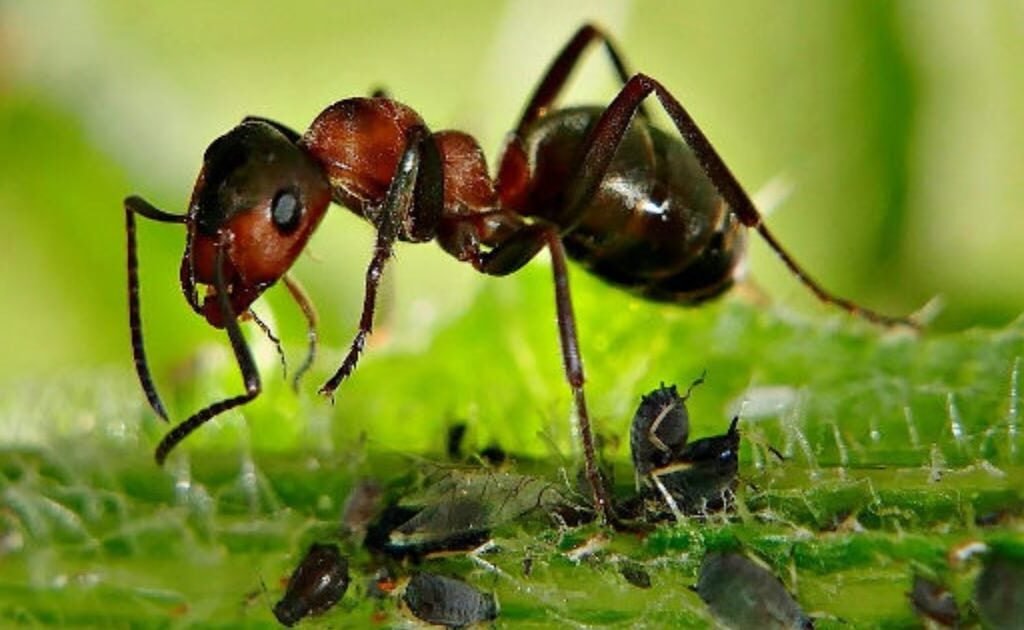
When to Use This Method:
If you’ve identified the location of an ant mound or colony, a direct attack can discourage them from staying. Boiling water is a quick and natural way to destroy nests, especially when combined with essential oils.
Ingredients:
- Boiling water (1–2 liters)
- 10–15 drops of peppermint, tea tree, or eucalyptus oil
How to Use:
- Boil water and add essential oil.
- Slowly pour it directly into the ant nest or mound.
- Repeat after a few days if activity continues.
Why It Works:
- The boiling water kills ants on contact and collapses the structure of the nest.
- Essential oils add long-term repelling effects.
Warning: Use caution to avoid pouring boiling water near the roots of your plants.
Bonus Tips for Long-Term Ant Control
Even with natural deterrents, prevention is key to keeping ants away for good. Here are a few maintenance strategies:
1. Control Aphid and Scale Populations
Ants protect and “farm” aphids for their honeydew. Eliminate aphids, and the ants will lose interest. Use neem oil, insecticidal soap, or ladybugs to control these pests.
2. Reduce Mulch Thickness
Ants love building colonies under dense mulch. Keep it thin (1–2 inches) and well-ventilated.
3. Keep Garden Beds Clean
- Remove rotting fruits, vegetables, and fallen leaves.
- Avoid sugary compost ingredients like overripe fruit near your growing areas.
4. Seal Raised Beds
If ants are entering through gaps or cracks in your raised beds, seal those with weatherproof caulk or copper mesh.
What NOT to Do
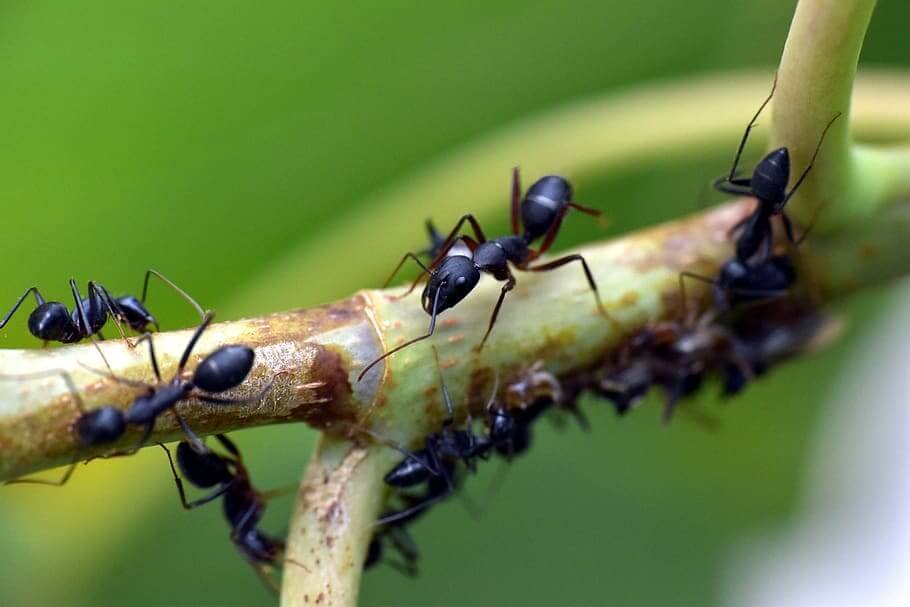
- Avoid boric acid near edible plants – While often recommended, it can contaminate the soil.
- Don’t use synthetic pesticides – They can kill beneficial insects, harm pollinators, and damage soil ecosystems.
- Never apply cinnamon oil or vinegar in high doses directly on plants – It can burn foliage or disrupt pH levels.
Conclusion
Ants might be fascinating creatures, but when they start to overrun your garden beds, they become a real problem—especially if they’re protecting aphids or disturbing young roots. Fortunately, you don’t need to resort to chemicals to keep them in check.
Using diatomaceous earth, ant-repelling plants, citrus peels, aromatic spices, and essential oil treatments, you can naturally deter ants and maintain a thriving, healthy garden.
By choosing natural methods, you’re not just protecting your vegetables—you’re protecting your soil, your pollinators, and the balance of nature in your backyard.






Leave A Comment